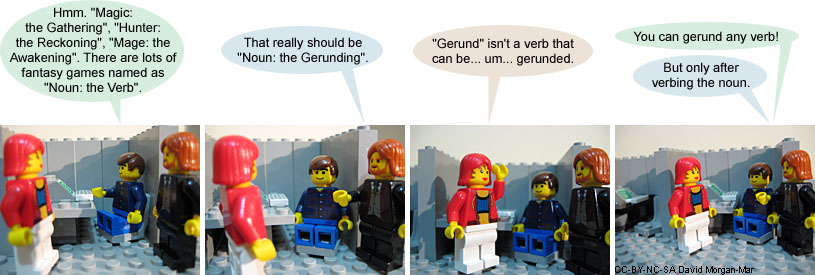Initial coordinators in technical, academic, and formal writing
Yesterday, I quoted someone writing on the nanowrimo forum ("Also, check the back seat", 11/7/2009), who offered an apparently irrefutable argument in favor of "No Initial Coordinators" (NIC), the zombie rule that forbids us to begin a sentence with a conjunction such as and or but:
[Usage standards and grammar] are related but not identical. Grammar deals with categories such as parts of speech, and the logical rules of syntax for constructing sentences. Grammatically, conjunctions link words, phrases, or clauses. So from a grammatical standpoint, a sentence beginning with a conjunction is a fragment, and hence ungrammatical.
Read the rest of this entry »

